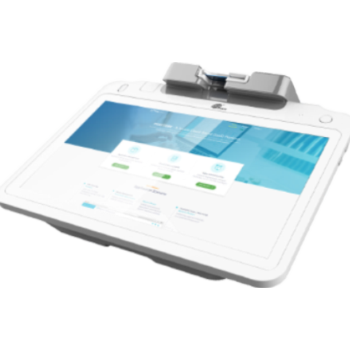What is important to a business when it comes to Payment Processing?
- Erica Pires
- February 16, 2021
- Industry news
A common question I receive from business owners or controllers when they find out I am in the payment processing industry is, “What is your rate?” It is interesting that the industry is at a point where it is so competitive and cutthroat that, that is the number one question. There are many more aspects of accepting payments that need to be considered and addressed by a business before they should work with a payment processing provider. If businesses don’t ask the right questions and get the information they need, the business could ultimately suffer, and have further challenges and headaches.
One question to consider at first- “Are all processors created equal?” Absolutely not. Think of it this way, if you met a person and he said he was a doctor, would you immediately expect he would properly diagnose an illness, or disease you have? There is a possibility, right?
What if you had a very specific disease and you had cataracts in the eye? You assumed because they said they were a doctor, they could help you and give you professional advice. Now, if you happened to be speaking to a gynecologist, is that doctor going to provide you the help you need? No. You didn’t ask the question on what type of doctor they were.
They could provide you some information, but it may not be the best information you can obtain. You need to ask the right questions, specifically asking questions pertaining to your business. One needs to make sure the payment provider you are speaking with can help you. Many processors, or payment providers, are good in particular areas and not others. This is important to understand and qualify the provider to your business.
Let’s break down some important topics a business owner needs to explore before you choose your payment provider.
- Business Type and Industry- A business owner needs to make sure the payment provider has history of working with your type of business and has proper tools and resources for your business. Maybe they are moving into a new sector and they don’t have much experience in your business type, but they do in other similar industries. That is okay. But keep asking questions and find out more to make sure they are a fit.
- Low Risk/ Medium Risk/ High Risk- Does the provider consider your business a low, medium or high-risk business? Many medium to high-risk business types are either prohibited or highly restricted in the providers risk tolerance. Low Risk businesses also need to ensure they partner up with the right provider that will provide the business added valued services such as next day funding, integration with equipment or POS systems, proper reporting and competitive pricing. It is important to know where your business stands.
- Equipment/ Software/ POS- Find out what equipment they support. Will they support the specific equipment you have, or more commonly now, the software you are using to manage your business and payments? There are many proprietary software systems on the market that will require you to use a specific payment provider. The most important task is to make sure your POS software or equipment is compatible with the payment provider.
- Pricing Structures- A business owner needs to determine what is important to them in regard to pricing. As a business owner, do you know the different types of pricing methods, and which one is best for you? Some people like the flat rate pricing method because they know they will only pay a certain rate. Others want to pay the least amount possible and are okay with a over detailed statement. Again, what is important to you as a business?
- Pricing Model- Certain pricing models can increase the risk of the business. Businesses that have the following pricing models will be viewed as higher risk businesses: crowdfunding, trial, subscription and quarterly or annual payments.
- Cash Discount- Are you eligible for a cash discount pricing program? Is this program an interest to you to save money on processing by passing the fee along to your customer?
- Delayed Delivery- Anytime there is a delayed delivery of products, there is an increase of risk. The further out the delivery timeframe, especially over 30 days, the more difficult setting up an account will be.
- Support- What is their customer support and technical support hours? Do you have a direct relationship with someone to get assistance from before you have to call into a support line?
- Role of the Provider- Who is setting you up with an account? Is it a sales rep? Who do they work for? Would it benefit you to work with a local office or a large processing company? Oftentimes, a local broker, or sales office will provide greater support and work harder for your business, than if you work with your bank or a larger company that won’t know you individually.
- Fraud- What are their policies regarding fraudulent activity that may hit your account? What tools do they offer to protect a business from fraud?
- Chargebacks- What are their chargeback thresholds? How do they view chargebacks and what is the recourse if a chargeback comes in? What support do they offer to assist with chargebacks?
- Online Reporting- What online reporting does the provider offer you? Does it provide you the detail and information you need to properly balance your books and manage your company? Do they offer integrations into QuickBooks or other accounting software? Is it easy to navigate through?
As a business owner, you need to make sure you obtain the most information you can about your provider. A good provider will be addressing each of these items with you as well, to make sure you are a good fit for their company. If not, they should be the first to say they aren’t a good fit, and recommend you to another company that would be a better fit. For instance, if you are a higher risk business and the sales person only works with retail stores, they most likely won’t be the best fit for you. As they only have experience with low risk customers, and don’t fully understand your business model.
The same is true about high risk providers and sales people. They know how to work with these types of businesses very well and if a retail business comes to them, it is not that they can’t assist, they might just not be the right fit for the business. All parties need to be okay with that and be an expert in your area.
The next time you are looking at different solutions, keep these items in mind and make sure you are asking the right questions. It will save time, money, and quite possibly many heartaches down the road.
Share this Article:
Meet our Business Services
MSS Pay offers your company tailored business services. Learn more about them:

Payment Processing

Marketing Tools

Chargebacks & Risk Management

Funding




